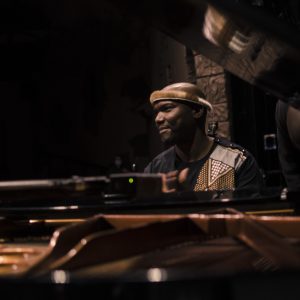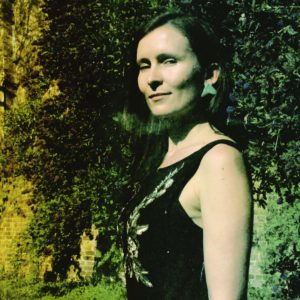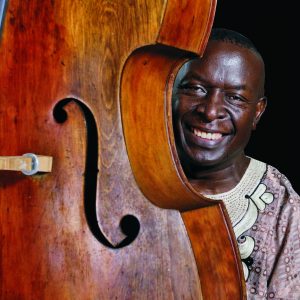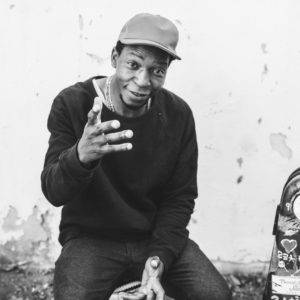Improvising the future of decolonised jazz
Music studies in their current form are a good example of the need to decolonise South African universities’ curricula. But how, and what comes after it’s been done?
Author:
21 March 2022

American master saxophonist Salim Washington, who lives in South Africa and teaches music at the University of KwaZulu-Natal, didn’t pull his punches in a recent PenSA podcast. Discussing common ground between the American and South African jazz experiences, he described one big surprise about arriving here: “When I ask people I play with ‘who do you like, who are you listening to?’ the first name is a European – and sometimes the second name too.”
His view was reinforced in the same forum by South African reedman Linda Sikhakhane: “In South Africa the curriculum hardly includes our culture. We have so much happening in our jazz, but it’s excluded.”
Discuss university jazz studies with other South African players and you’ll hear a harmonious chorus of support. On the pages of New Frame alone, pianist Sibu Mashiloane stresses how music studies need to – but do not – start with what speaks best to students, and with consideration of feel as well as technique. Composer Cara Stacey urges practical steps to reform “which instruments are valued or who gets to teach music”.
Related article:
Bassist Jesse Mogale asserts: “Our heritage should be the point of departure for our music education.” He describes the impact on playing when it is not: “Guys from uni used to have problems working with the late Jonas Gwangwa because he’d tell them, ‘You’re voicing the chords wrong. We don’t voice our chords like that.’ They’d never studied South African voicings. Something’s wrong in that equation.”
As for the impact change can make, trombonist Malcolm Jiyane describes how discovering Gwangwa, a South African rather than an American trombonist, during his music education “blew my soul apart”.
It’s apt, then, that the Wits University Institute for Social and Economic Research (Wiser) has just launched a new year-long research project, After Decolonization. It aims to think beyond what the institute calls the “endless present of decolonising” to what and how African universities and their programmes could be after, and includes consideration of the arts, though not specifically jazz.
Extending the conversation
Wiser historian and Wits Art Museum board member Hlonipha Mokoena, working on restitution in the visual arts for the research project, suggests that “so much of the South African decoloniality debate is focused on a North-South conversation [as if] the future of the university in Africa is almost the same as its future in America … The teaching models imported into South Africa are largely models imported from Europe and North America. Is the function of universities here simply to reproduce the debates happening elsewhere? That much larger conversation about what an African university is for has not been heard.”
As Mokoena implies, decolonising African university structures has multiple aspects: not only what is learned but who teaches, in what kind of context, and how. Changing the face behind the lectern may change little if prescribed content remains untouched. Changing content goes further – but leaves the lectern and its associated purpose and process models unquestioned.
The University of Cape Town’s task team set up in 2018 after #Rhodes Must Fall concluded that the primacy of the Western conservatoire model of music education, the foregrounding of a deficit model (“what students lack rather than what students bring”) and the privileging of genres and narratives of the Global North made its South African College of Music feel exclusionary for many Black and working-class students. Changes since then have, among other things, certainly added more South African repertoire to what is studied.
Related article:
But accretive reform has limits: unless some of the old is removed to make room for much more of the new, there simply isn’t time or space in a university course. Meanwhile, removing legacy cultural content from tertiary courses has, everywhere, proved far more contentious than updating science teaching by dropping outdated theory – which happens regularly, sometimes almost unnoticed.
Further, changing curriculum items doesn’t decolonise learning processes, and as Mokoena observes, carries the risk that “instead of decolonisation you end up with localisation”. Simply discovering a local musician, she points out, does not, alone, amount to doing “something decolonial”.
Decolonial outcomes demand a holistic shift, not only one towards objects of study. In jazz, that means acknowledging that the musical conversations in genre development were and remain two-way, and that jazz students need equally to access the African voices.
The freedom of identity
That’s something that Cape Town-based jazz drummer Claude Cozens experienced – ironically – in Norway. He completed a performance-based masters at the University of Bergen, producing a self-designed sequence of recordings to analyse and overview his musical development. South African jazz teaching, he observed, often appears educationally “stuck in the 1970s”.
Shaking off American hegemony was key for shaping alternative models, he believes. “Because Norway has identified that American culture is not their culture, that’s brought freedom in what counts as subject matter and new ways of doing artistic research.”
Jazz, Mokoena believes, represents something of the outward-focused thinking central to decolonial change. “It’s much more of an intra-African and intra-diasporic conversation. If you put a musical score to After Decolonisation, it would have to be that kind of Afro-futuristic sound.”
Related article:
Her colleague, Wiser director Sarah Nuttall, observes that “the very notion of improvisation implies a future orientation”. Both allude to the work of historian Robin Kelley, who traces the lineage of decolonisation as a shaping force for modern jazz.
For Nuttall, the decolonised African university needs to “find new language”, moving away from what she calls “the kind of flat, deflated language of the neoliberal university [that makes] decolonisation an empty cipher for pedestrian processes”. Mechanical box-ticking about “access”, she feels, curtails more forward-looking considerations of “how the university distributes itself, intellectually and in other ways”.
Mokoena adds the need to interrogate historic discipline boundaries. “As well as teaching music, how about teaching with music, in a discipline such as literature? Overall context could be enriched by, for example, what we offer in terms of lunchtime concerts.”
The lack of relevant resources remains a persistent problem. The pervasive myth that Google contains everything needed by students researching Africa, says Mokoena, is hard to dispel, “and the absence of information means students don’t have the vocabulary to know what to look for”. Technology, she feels, offers new options. “For example, here we’ve digitised the music of indigenous African instruments to make that resource more easily available.”
Related article:
Music, says Nuttall, indeed has the possibility to be “a different kind of archive”.
Other aspects of change may be more thorny. It’s not clear how university processes could accommodate the ways African jazz and traditional music grow in informal sites of learning, often embodying lived experience, peer and organic intellectual evaluation, community relationships and spirituality – the very ingredients feeding guitarist Billy Monama’s assertion that “in South African jazz, it’s feeling before staff notation”.
For Nuttall, “gathering senior African peer expertise … to reconnect with each other around intellectual projects” starts the process of thinking through such issues. Nevertheless, they pose an implicit but very jazzy question for After Decolonization: “I’m wondering,” says Nuttall, “how open to improvisation decolonisation has been over the past few years?”




